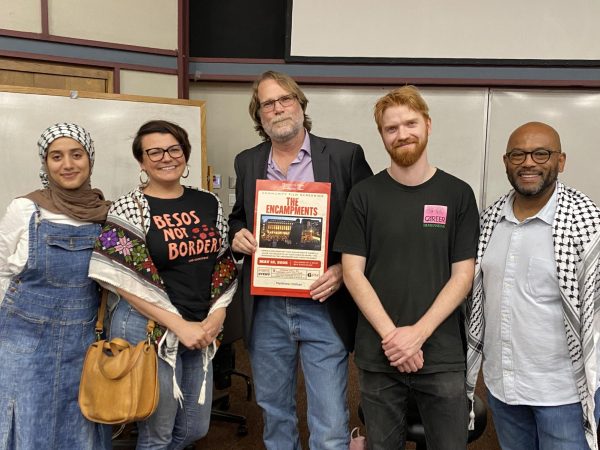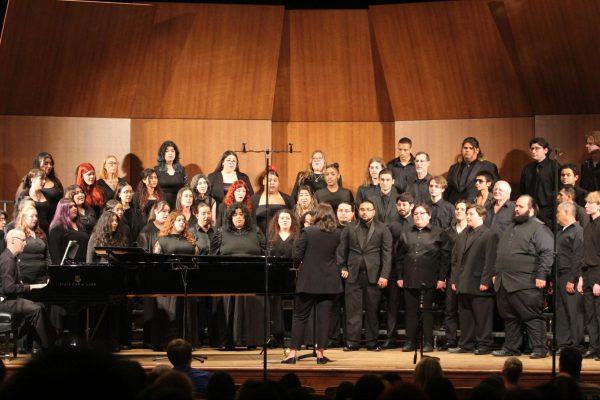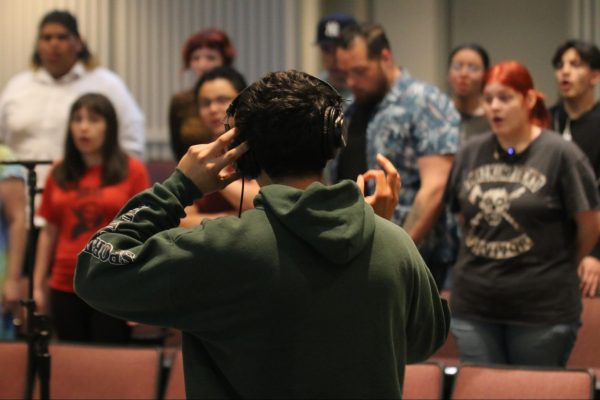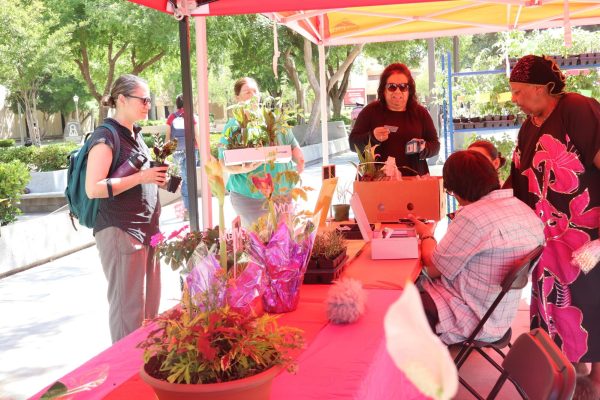Competitive Speech Moves Students to Tears
The Fall Intramural Forensic Competition completed its fourteenth active year at Fresno City College on Nov. 20, allowing the best orators at FCC to compete for awards and cash prizes.
Although the competition gave out physical prizes, it also gave students the opportunity to conquer the anxiety often experienced when performing speeches.
The competition was first started in 2005, when Communication Arts Instructor Dan Scott began his tenure at FCC and decided there should be a showcase for the college’s student speakers.
“The purpose of the event was to give students the opportunity to speak in a competitive environment, a little bit different from just a regular classroom, and just give everybody an opportunity to come be a part of the speech tournament,” said Scott.
He wanted to provide a public speaking opportunity to students who had other commitments or conflicting schedules that kept them from taking part in other competitions.
“We try to bring at least one competition here each semester for the students that want to still be involved,” said Scott.
Plenty of students sign up for the event, with the turnout usually ranging between 50-70 competitors. An elimination process sends the speakers through multiple rounds of performing their speeches before the winners are chosen after performing in the final round.
Advancing through all those stages can be stressful, and competitors say it wouldn’t take much else other than your name to be called for the anxiety to start setting in.
“I didn’t even think I was going to be a runner up. I was so nervous about the topic, and I didn’t know how I was going to deliver it,” said Felicia Andrade, who placed third in the informative speaking category.
Andrade spoke about suicide prevention and post-traumatic stress disorder, both issues that have affected her family. She noted that her speech was so moving, a handful of students in one of the rounds were brought to tears.
“You always want to relate to your audience and engage with your audience. With me having a personal story, I knew there would be some kids who could relate to it,” said Andrade. Like Andrade, most of the students that placed in the finals didn’t expect to make it that far.
“I’m not going to complain that I got in the finals, but when I saw I made it, I was just like ‘I’ve got to do it again?’” said Stephen Bridges, who finished in third place in persuasive speaking.
“When you’re building up to it there’s all this anxiety, but just realizing you’re done with it is like a breath of fresh air,” he said.
For Bridges, the anticipation leading up to the competition doubled as a process of building his self-confidence. He says that he had a lot of issues dealing with his anxiety growing up, so this was something he never envisioned himself doing.
“You might beat yourself up [about mistakes], but in the long run it doesn’t really matter that much,” he said.
“At this point, I’m not as worried about what other people think, I’m doing this for myself,” said Bridges. In the end, he and the other competitors stood together with gleaming plaques and bright smiles.
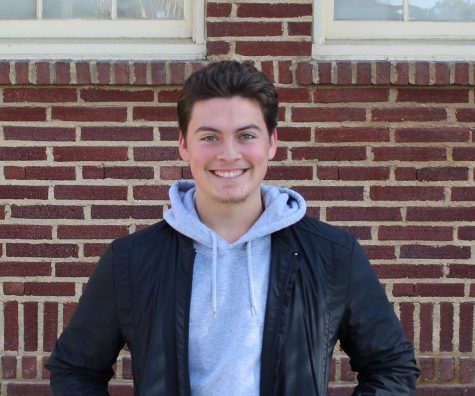
Patrick Henslee is in his third semester at the Rampage, and steps into the role of Managing Editor for the Spring 2020 semester. The 20-year-old is an...

